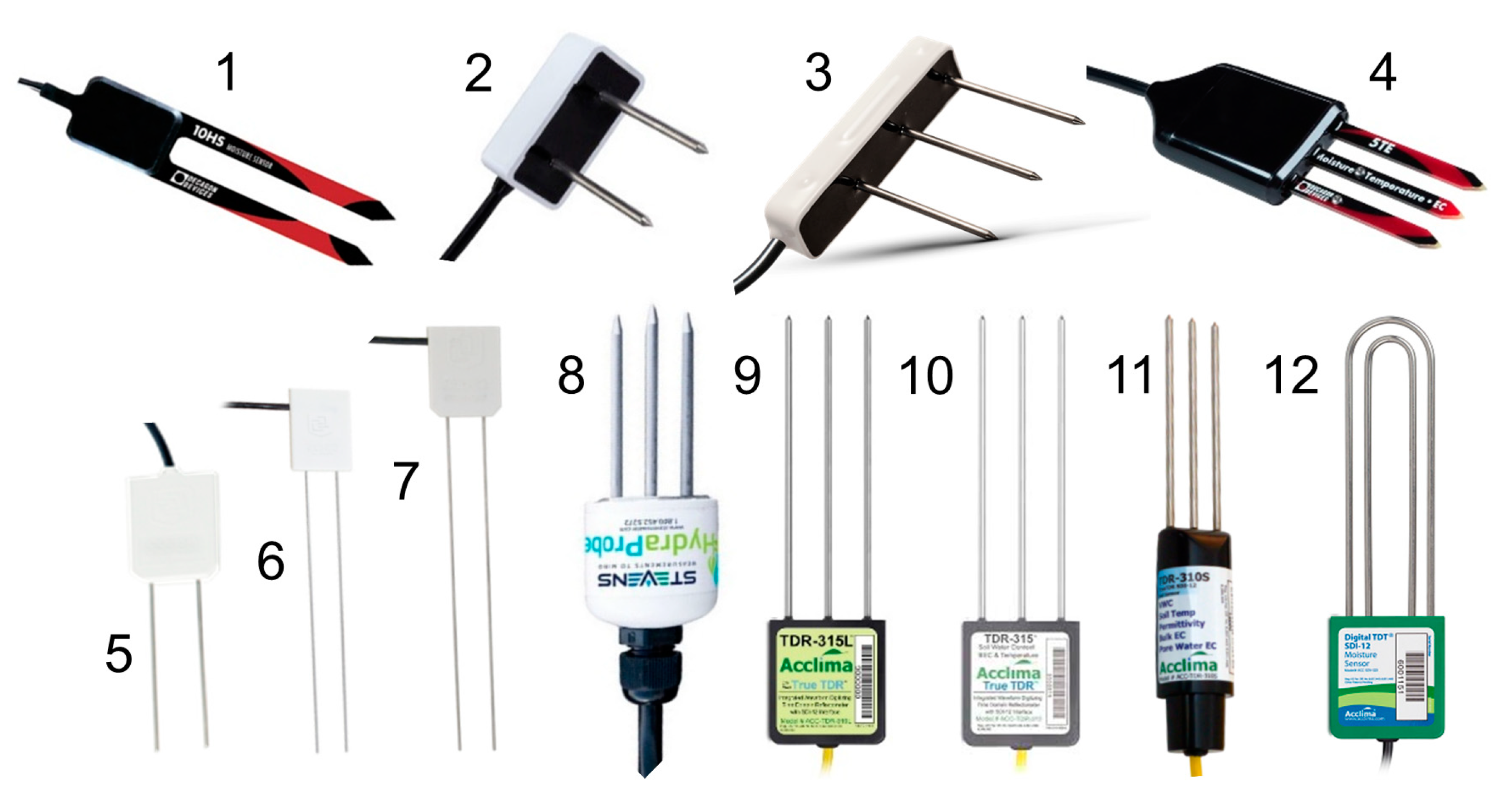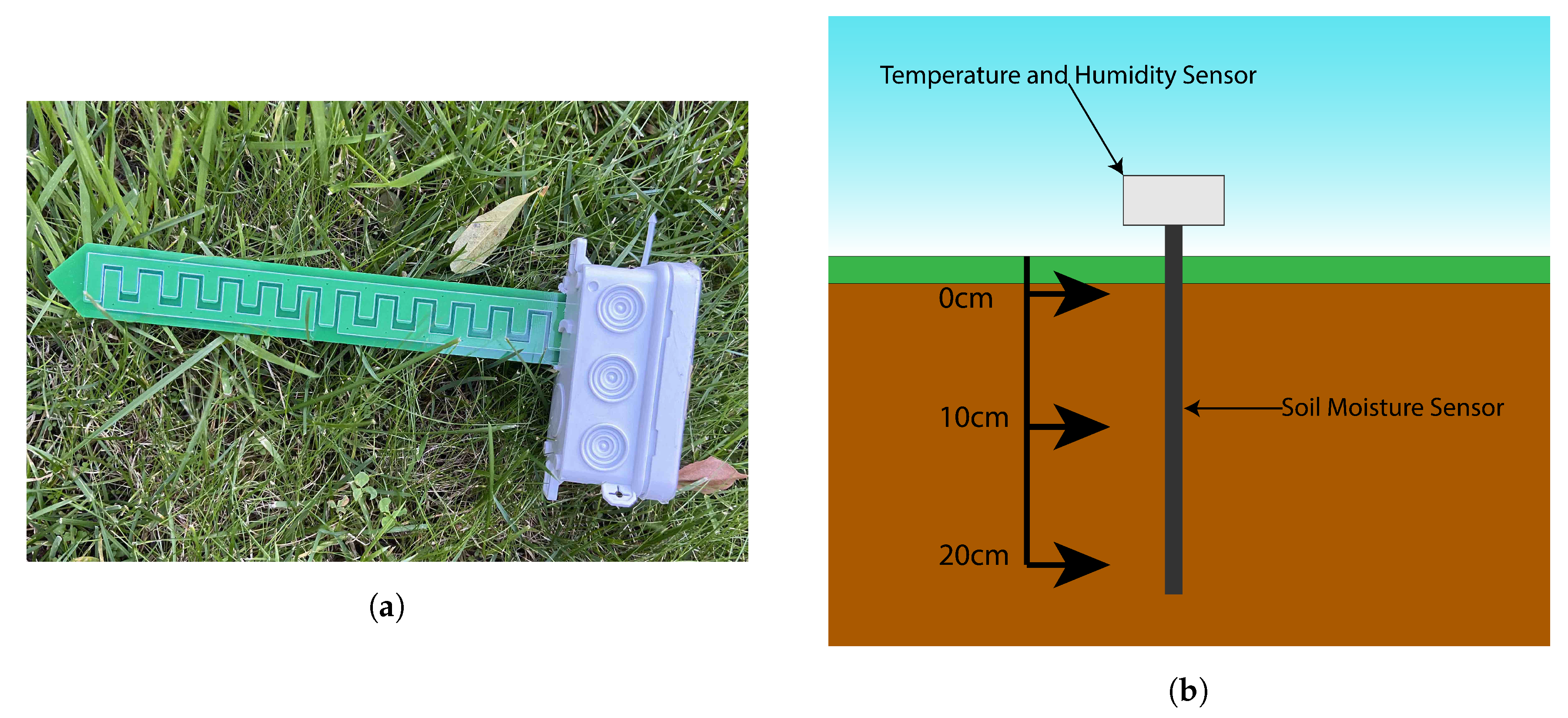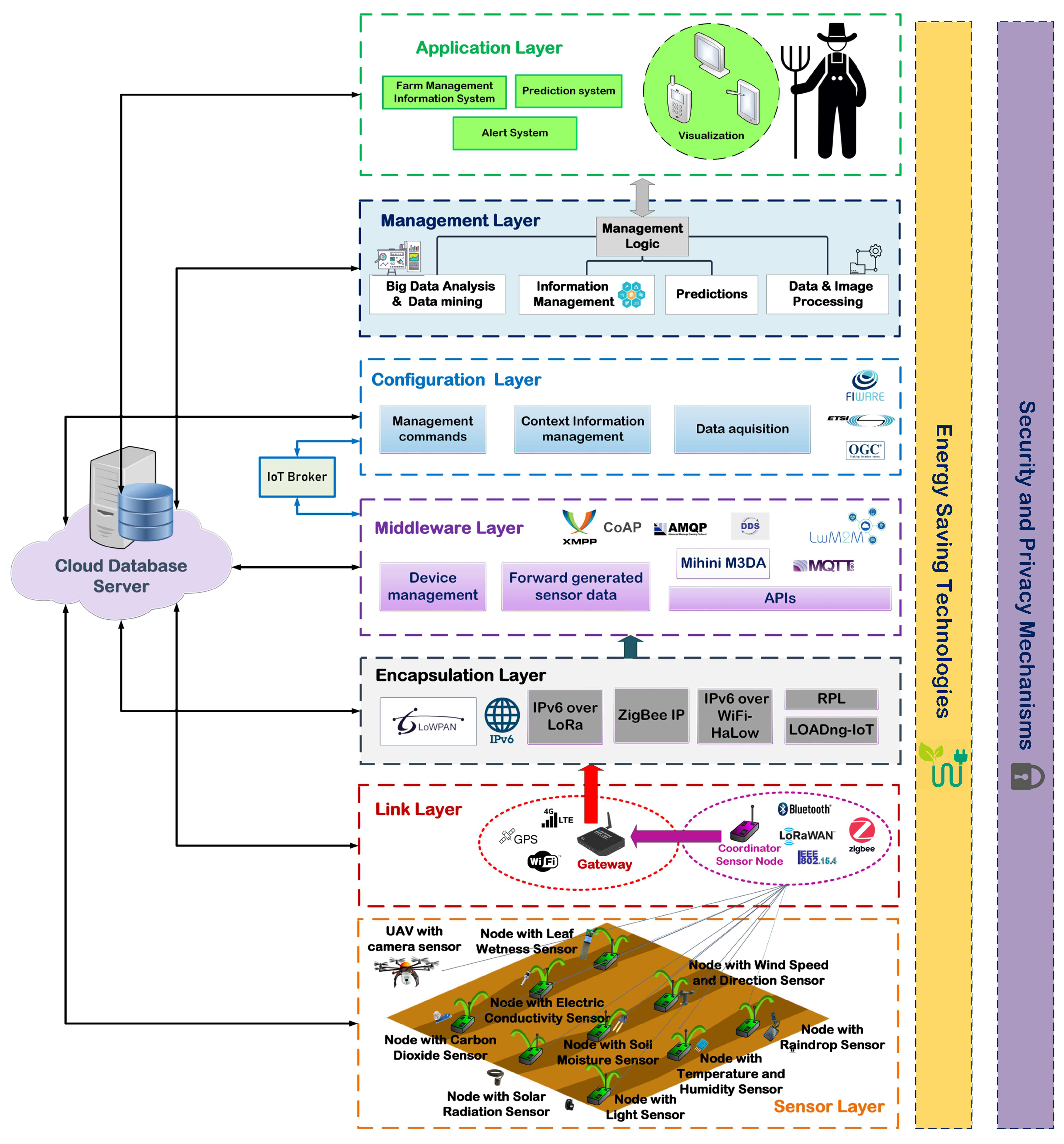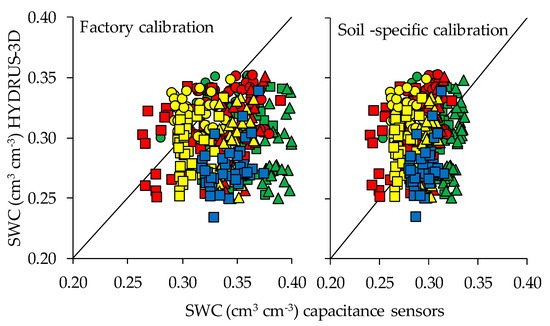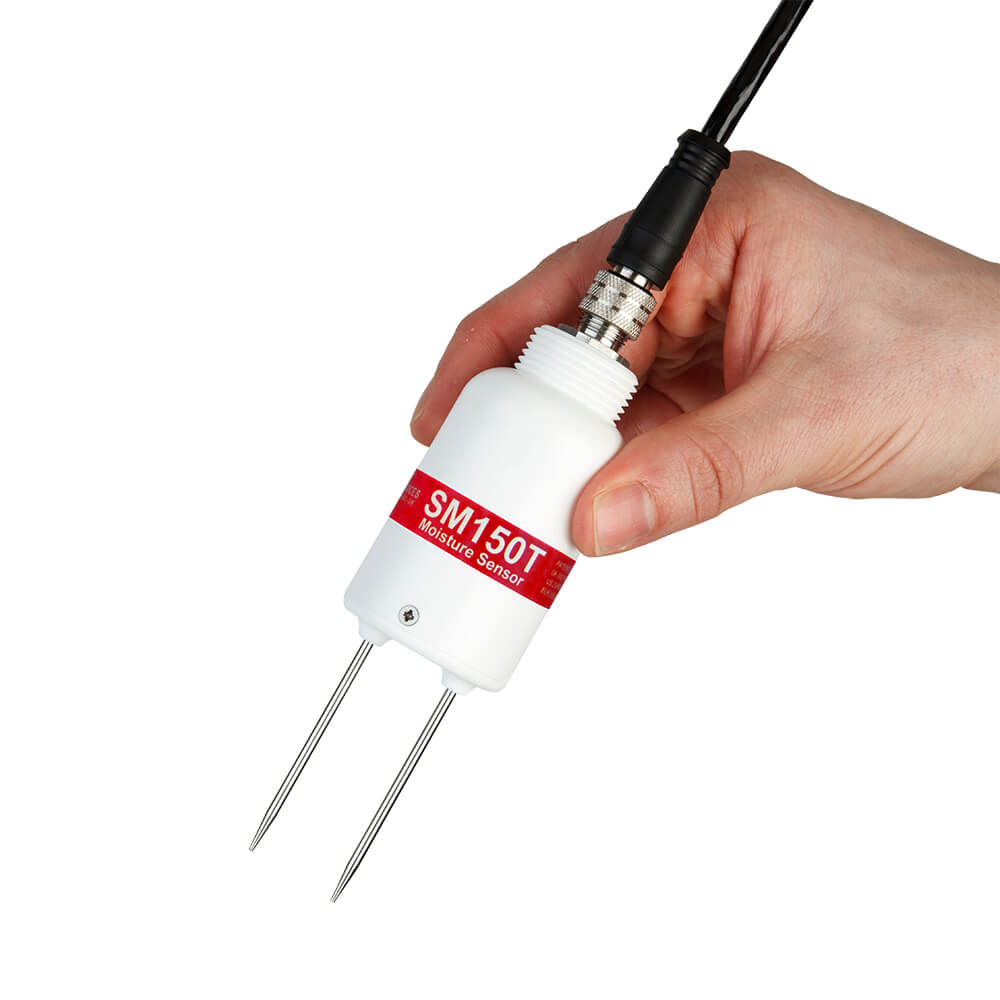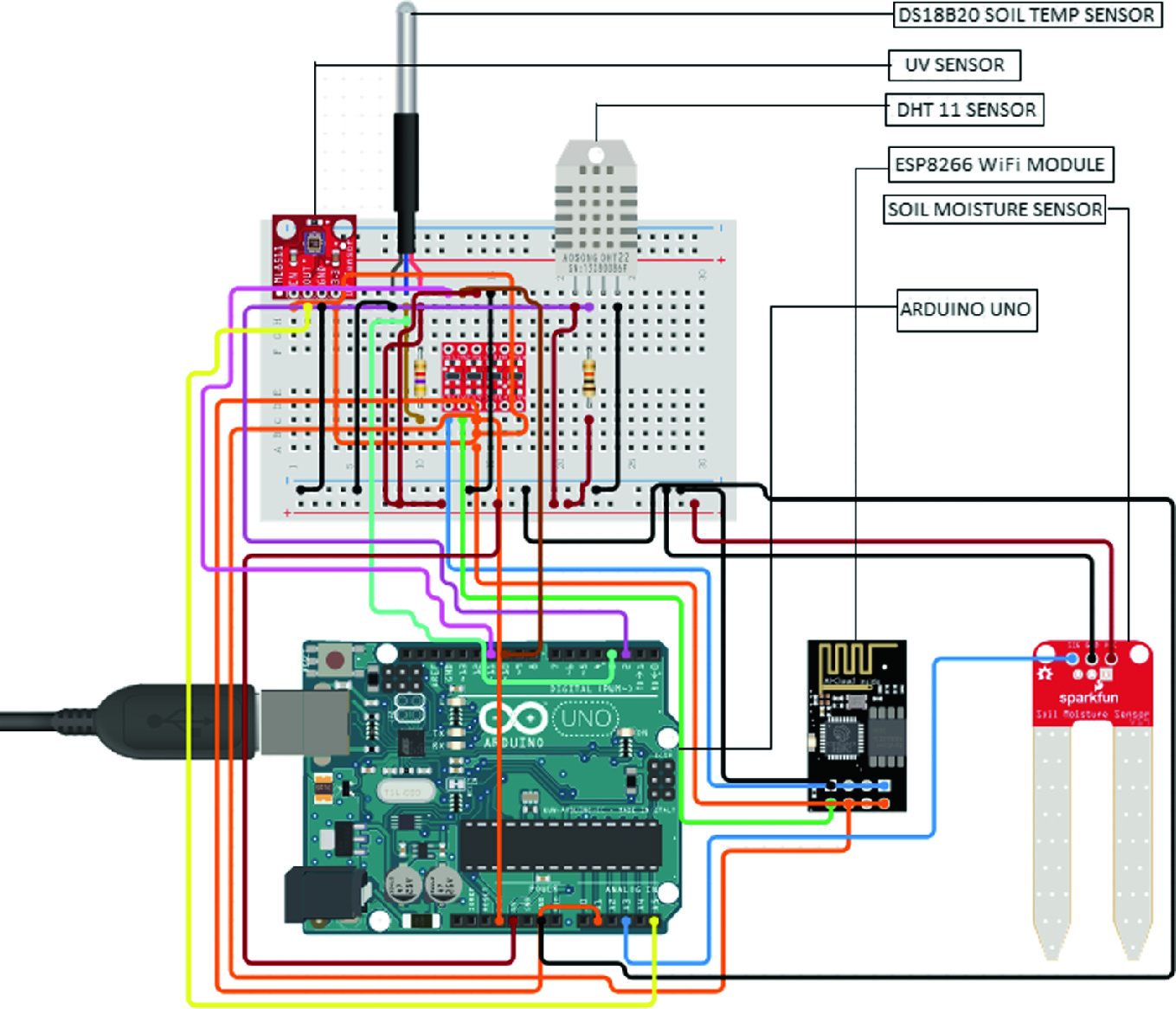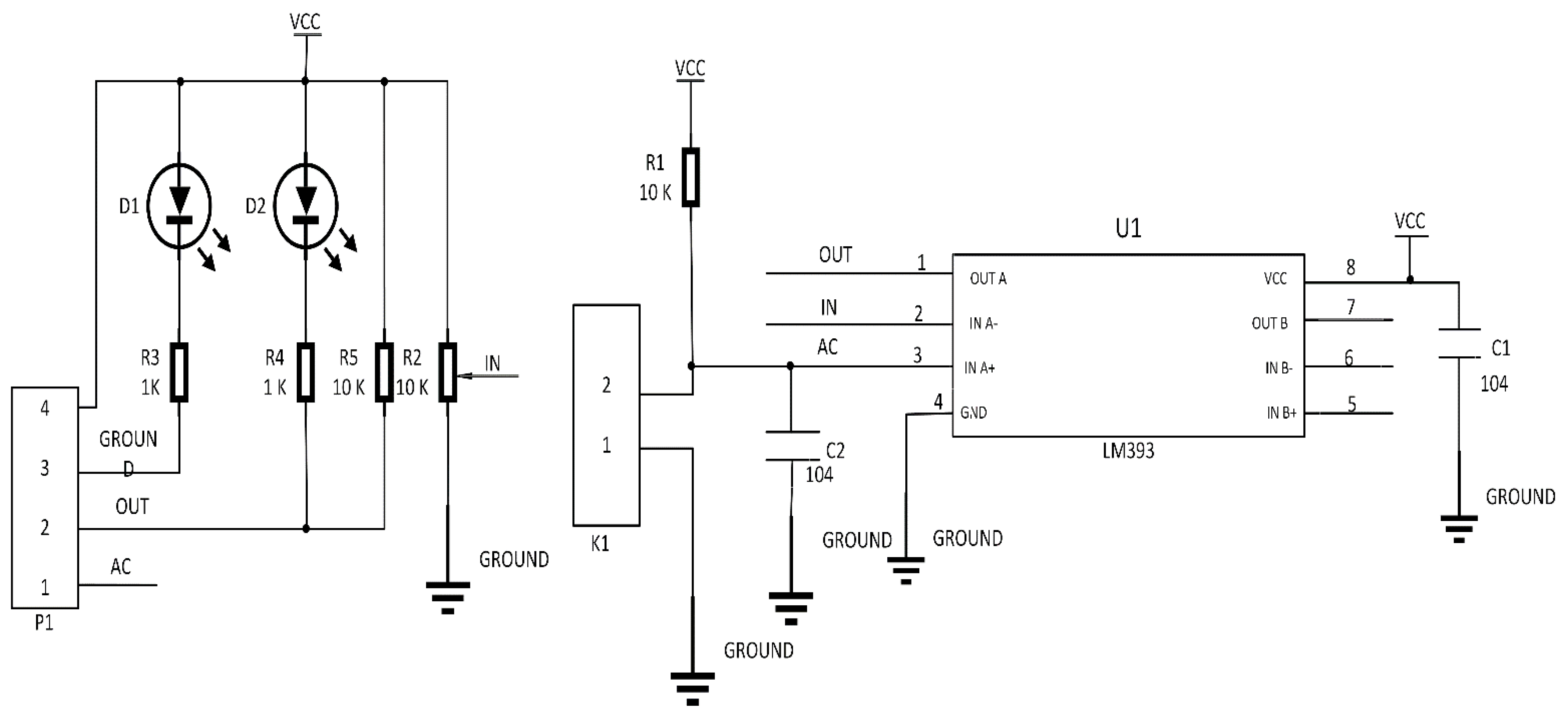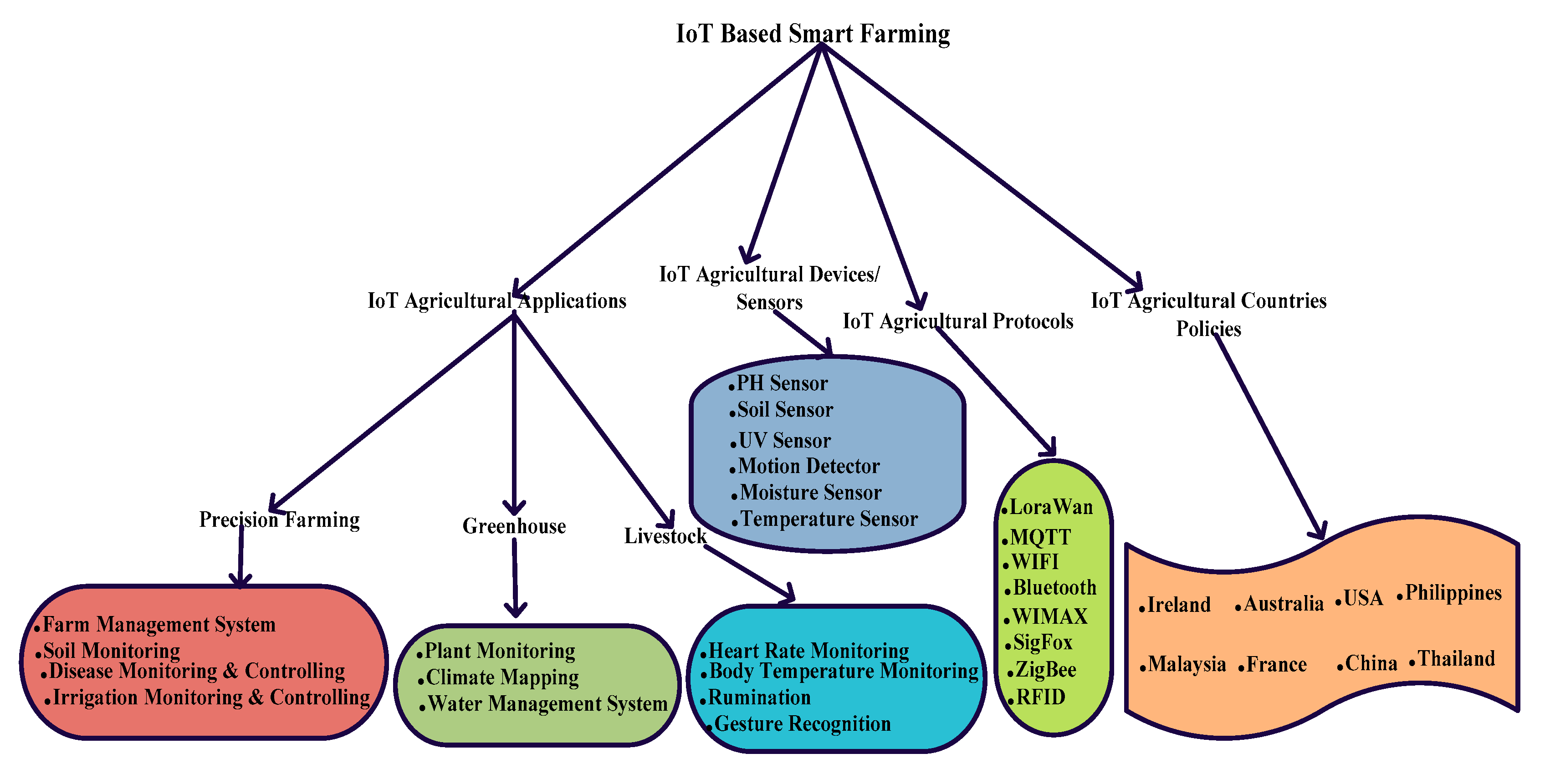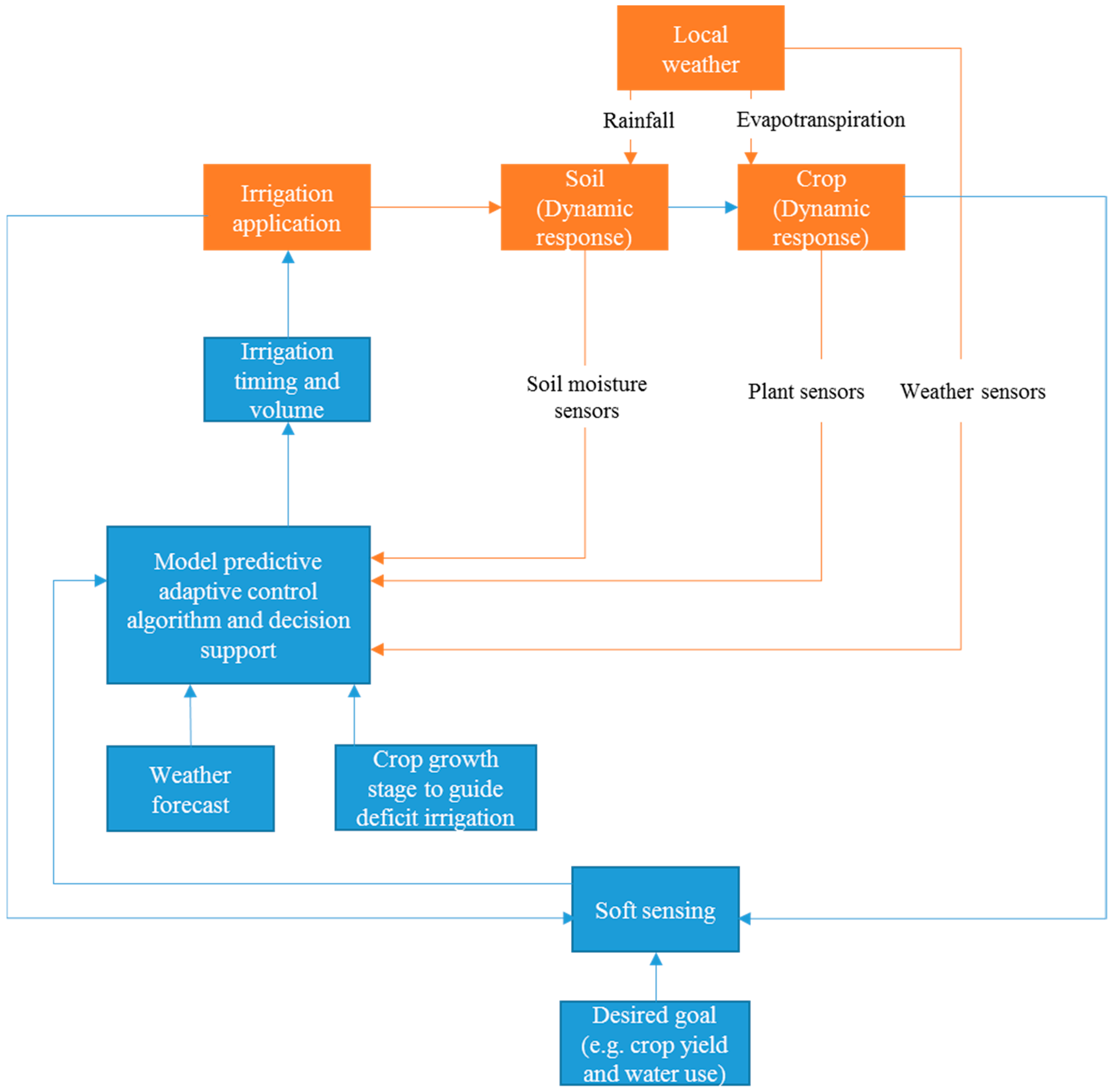Wireless Soil Moisture Sensor Networks For Precision Irrigation Scheduling

Wireless sensor nodes used in this study operate on license free radio frequency with mesh networking capability self organising and self healing.
Wireless soil moisture sensor networks for precision irrigation scheduling. The field consists of sensor nodes powered with application specific on board sensors. The results revealed that network lifetime increased to 1825 min. Eve the first creation of plaid systems may not be the genesis of the smart irrigation controller market but when paired with their adam soil moisture sensor has nicely filled a gap in the market where others have aimed their focus solely on providing connected controllers. We describe the deployment of a wireless sensor network wsn composed of 135 soil moisture and 27 temperature sensors in an apple tree orchard of about 5000 m 2 located in the municipality of cles a small town in the alpine region northeastern italy the orchard is divided into three parcels each one subjected to a different irrigation schedule.
Intelligently designed as a drop in replacement for dumb irrigation controllers eve consists of both a hub to. In this study an arduino based wireless sensor network system was developed and tested to monitor volumetric soil water content using decagon ec 5 sensors. This paper describes and compares the structure build and implementation of crossbow digimesh and. Developed a wsn soil moisture mapping and monitoring method to provide information for irrigation scheduling.
1 depicts a typical wireless sensor network deployed on field for agricultural applications. To conserve power the sensor nodes relayed data to the bs every 15 min through the greatest energy efficient route. The nodes in the on field sensor network communicate among themselves using radio frequency rf links of industrial scientific and medical ism radio bands such as 902 928 mhz and 2 4 2 5 ghz. For irrigation scheduling the soil water content measured using soil moisture sensors current soil water content is compared to the soil water content at field capacity to calculate the total water depletion in the soil profile.
A site specific wireless sensor based irrigation control system is a potential solution to optimize yields and maximize water use efficiency for fields with variation in water availability due to. In contrast wireless sensor networks enable near real time continuous measurement of soil moisture at targeted positions providing the site specific information required for precision irrigation scheduling and efficient freshwater management. The vwc measurements provided by the soil moisture sensor after 12 24 hours of heavy irrigation or rain is the.

